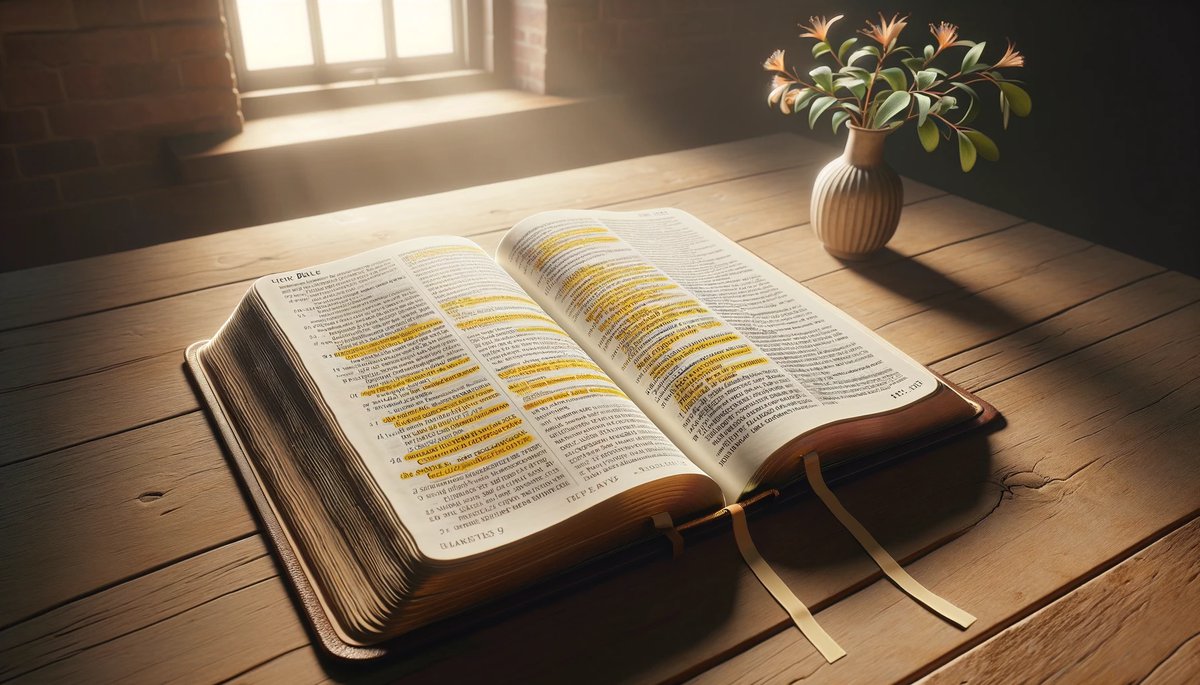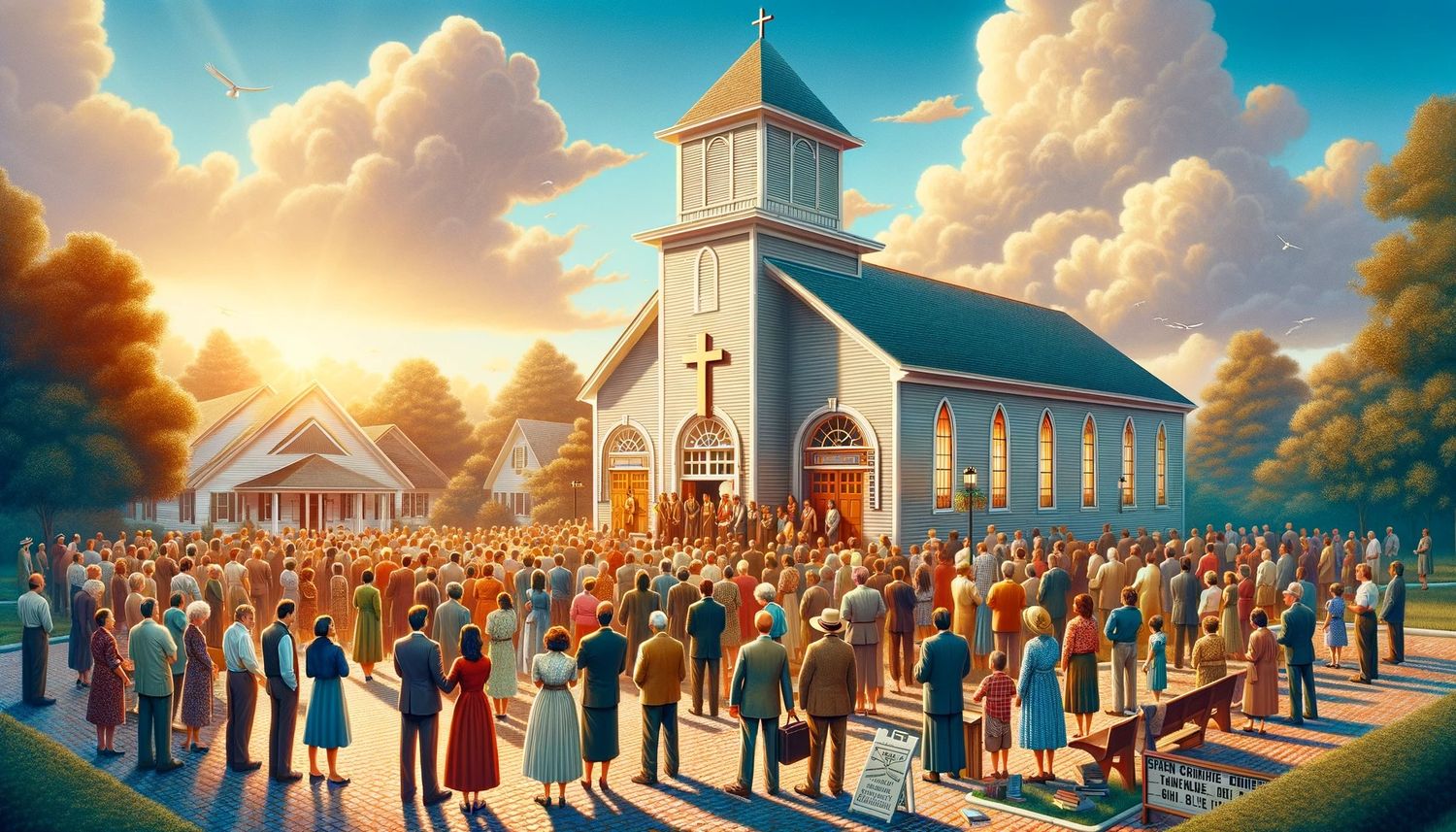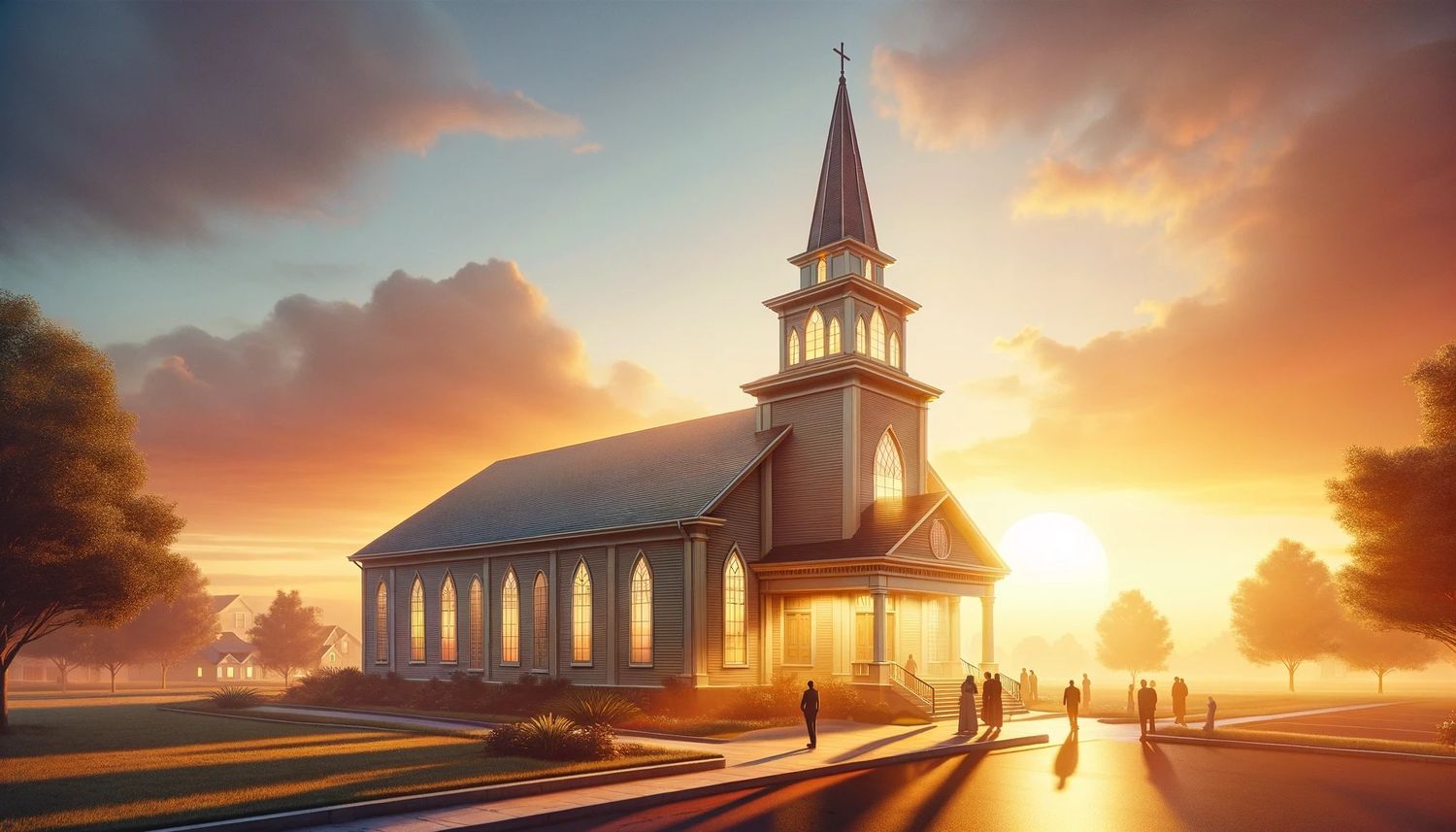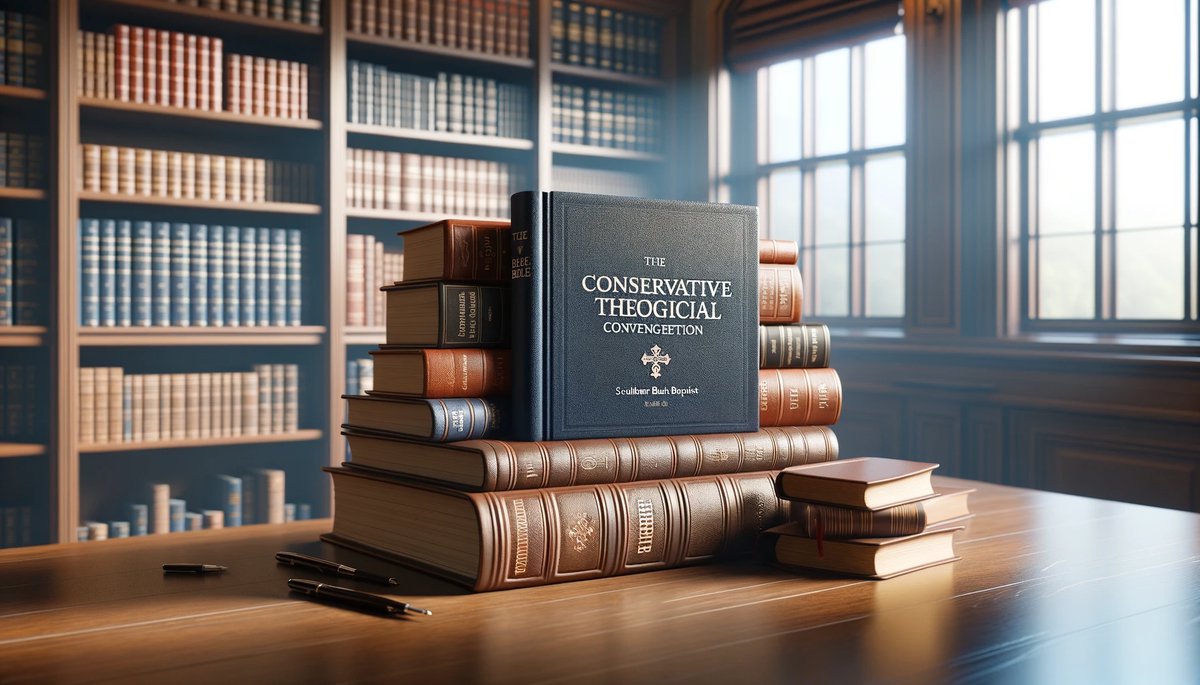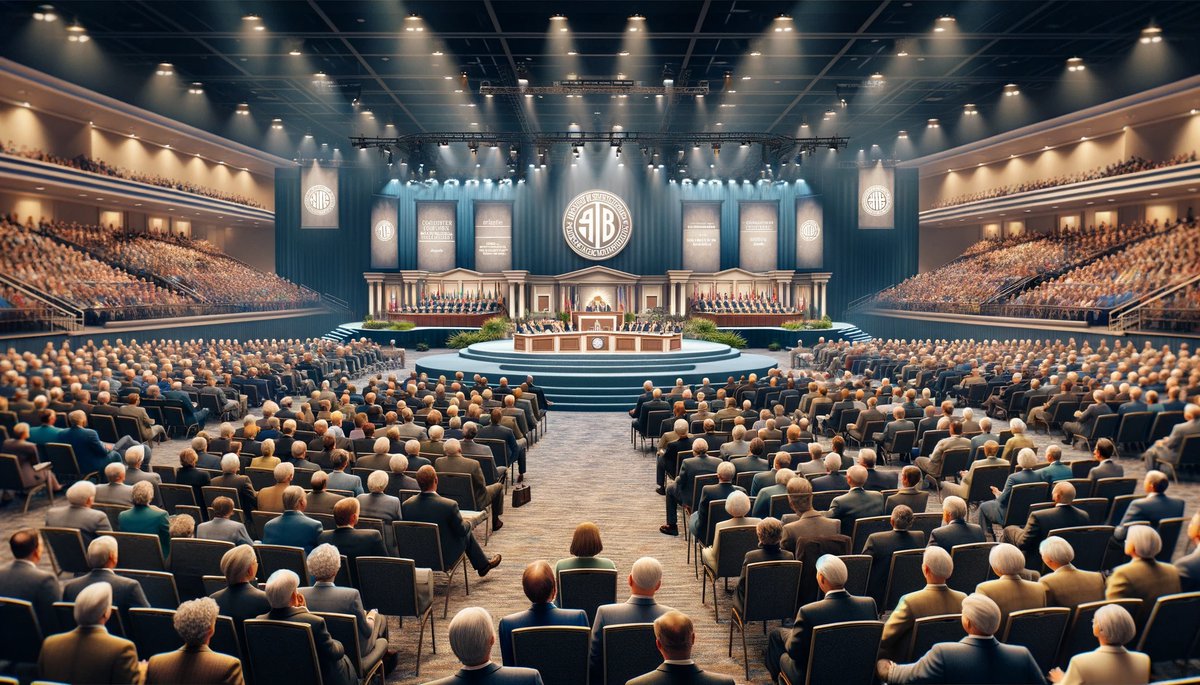Home>Theology and Spirituality>What Is A Southern Baptist Beliefs


Theology and Spirituality
What Is A Southern Baptist Beliefs
Published: February 20, 2024
Ericka Andersen, an editor at Christian.net, expertly merges digital strategy with content creation, focusing on faith and societal issues. Her communication skills enhance the platform's engaging narratives, fostering meaningful dialogue on belief's impact on society.
Discover the core beliefs and practices of Southern Baptists. Explore their theology and spirituality to gain a deeper understanding of their faith.
(Many of the links in this article redirect to a specific reviewed product. Your purchase of these products through affiliate links helps to generate commission for Christian.net, at no extra cost. Learn more)
Table of Contents
Introduction
Southern Baptist beliefs are deeply rooted in a rich tapestry of history, theology, and tradition. As one of the largest Protestant denominations in the United States, the Southern Baptist Convention (SBC) has played a significant role in shaping the religious landscape of the country. Understanding the core tenets and practices of Southern Baptist beliefs provides valuable insight into the faith, values, and perspectives of millions of individuals who identify with this denomination.
The Southern Baptist tradition is characterized by a commitment to biblical authority, evangelism, and the priesthood of all believers. This distinctive blend of theological convictions and practical expressions of faith has contributed to the enduring influence of Southern Baptist beliefs within the broader Christian community. Exploring the historical foundations, core beliefs, practices, and ongoing debates within Southern Baptist theology offers a comprehensive view of this dynamic and multifaceted tradition.
The journey into the world of Southern Baptist beliefs invites us to delve into the complexities of faith, grapple with theological nuances, and appreciate the diverse expressions of spirituality within this tradition. From the early origins of the denomination to its contemporary impact on society, the exploration of Southern Baptist beliefs unveils a compelling narrative of faith, conviction, and the pursuit of spiritual truth. Let us embark on this enlightening expedition to unravel the essence of Southern Baptist beliefs and gain a deeper understanding of this influential Christian tradition.
Read more: What Are Primitive Baptist Beliefs
History of Southern Baptist Beliefs
The history of Southern Baptist beliefs is a captivating saga that traces its roots back to the early 17th century. The denomination's origins can be linked to the Baptist movement, which emerged in England as a response to the prevailing religious and ecclesiastical structures of the time. As dissenters from the Church of England, early Baptists championed the principles of religious freedom, believer's baptism, and congregational autonomy. These foundational convictions laid the groundwork for the development of Southern Baptist beliefs in the American context.
The Southern Baptist Convention (SBC) officially formed in 1845 in Augusta, Georgia, as a result of theological and regional tensions within the broader Baptist community. The catalyst for this separation was rooted in the issue of slavery, which had become a divisive point of contention. Southern Baptists, who held pro-slavery sentiments, sought to establish a distinct identity that aligned with their theological and cultural perspectives. This pivotal moment in history marked the beginning of the distinct trajectory of Southern Baptist beliefs within the landscape of American Christianity.
Throughout the 19th and 20th centuries, Southern Baptist beliefs underwent significant evolution, shaped by cultural, theological, and social influences. The denomination experienced periods of growth, doctrinal refinement, and engagement with pressing societal issues. The conservative resurgence in the late 20th century brought about a renewed emphasis on the authority of Scripture and a reaffirmation of traditional Baptist doctrines, solidifying the theological framework of Southern Baptist beliefs.
Today, the Southern Baptist Convention stands as a prominent force in global missions, evangelism, and social initiatives, reflecting a legacy of resilience, adaptability, and unwavering commitment to core theological principles. The historical narrative of Southern Baptist beliefs serves as a testament to the enduring impact of faith, the complexities of theological interpretation, and the dynamic interplay between religious convictions and cultural contexts. This rich tapestry of history continues to shape the identity and ethos of Southern Baptist beliefs, positioning the denomination as a significant presence in the mosaic of Christian traditions.
Core Beliefs of Southern Baptists
At the heart of Southern Baptist beliefs lies a set of core convictions that form the theological bedrock of the denomination. These foundational beliefs serve as guiding principles, shaping the identity, mission, and practices of Southern Baptists across the globe. Central to the doctrinal framework of Southern Baptist beliefs is a firm commitment to the authority of Scripture. The Bible is revered as the inspired and infallible Word of God, serving as the ultimate source of divine revelation and the standard by which all matters of faith and practice are evaluated.
Another fundamental tenet of Southern Baptist beliefs is the doctrine of salvation. Southern Baptists affirm the necessity of personal faith in Jesus Christ for salvation, emphasizing the redemptive work of Christ on the cross and the transformative power of His grace. This emphasis on individual conversion and the primacy of personal faith underscores the evangelical fervor that characterizes Southern Baptist theology.
Furthermore, Southern Baptist beliefs underscore the priesthood of all believers, affirming the direct access of every believer to God through Christ and the call to engage in the ministry of reconciliation and proclamation of the Gospel. This egalitarian view of the priesthood underscores the democratic ethos that permeates Southern Baptist ecclesiology, emphasizing the autonomy of local churches and the participation of all members in the life and mission of the church.
In addition to these core beliefs, Southern Baptists uphold traditional Baptist doctrines such as believer's baptism by immersion, the symbolic observance of the Lord's Supper, and the autonomy of the local church. These distinctive theological markers reflect the enduring legacy of Baptist heritage and contribute to the distinct identity of Southern Baptist beliefs within the broader tapestry of Christian traditions.
The core beliefs of Southern Baptists encapsulate a robust theological framework that underscores the primacy of Scripture, the centrality of personal faith in Christ, and the priesthood of all believers. These foundational convictions serve as the theological compass that guides the faith and practice of Southern Baptists, shaping their engagement with the world and their unwavering commitment to the proclamation of the Gospel.
Practices and Traditions
The practices and traditions within the Southern Baptist tradition are deeply intertwined with the theological convictions and historical developments that have shaped the denomination. These distinctive elements encompass a wide array of spiritual disciplines, communal rituals, and organizational structures that reflect the ethos and values of Southern Baptist beliefs.
Central to the practices of Southern Baptists is the emphasis on congregational worship and fellowship. The gathering of believers for corporate worship, prayer, and the proclamation of the Word holds significant importance within Southern Baptist congregations. This communal expression of faith fosters a sense of unity, mutual encouragement, and spiritual edification among members, reinforcing the bonds of fellowship and shared devotion to Christ.
Furthermore, the practice of believer's baptism by immersion stands as a defining rite within Southern Baptist tradition. This symbolic act signifies the believer's identification with the death, burial, and resurrection of Christ, representing a public declaration of faith and a pivotal moment of spiritual significance. The emphasis on believer's baptism underscores the individual's personal commitment to Christ and serves as a visible testimony of their faith within the faith community.
In addition to these foundational practices, Southern Baptists place a strong emphasis on evangelism and missions. The denomination's commitment to spreading the Gospel message locally and globally is manifested through various outreach initiatives, mission trips, and evangelistic endeavors. This fervent dedication to sharing the message of salvation reflects the evangelical zeal that permeates Southern Baptist beliefs, driving the denomination's engagement with diverse communities and cultures.
The tradition of congregational autonomy is another hallmark of Southern Baptist practices. Local churches within the Southern Baptist Convention maintain a high degree of independence in decision-making, governance, and ministry initiatives. This autonomy allows individual congregations to adapt to their specific contexts, pursue unique ministry opportunities, and exercise self-governance in accordance with their understanding of Scripture and Baptist principles.
Moreover, the observance of the Lord's Supper, also known as communion, holds a significant place in Southern Baptist worship practices. This symbolic act of partaking in the bread and the cup serves as a poignant reminder of Christ's sacrificial death and the spiritual nourishment derived from communion with Him and fellow believers. The observance of the Lord's Supper underscores the centrality of Christ's redemptive work and the communal bond shared among believers in the body of Christ.
These practices and traditions encapsulate the vibrant tapestry of spiritual disciplines, communal rituals, and organizational dynamics that define the Southern Baptist tradition. They reflect the enduring legacy of faith, the commitment to biblical principles, and the unwavering dedication to fulfilling the Great Commission. The rich array of practices and traditions within Southern Baptist beliefs serves as a testament to the dynamic interplay between theology, spirituality, and communal expression, shaping the lived experience of faith for millions of adherents within this influential Christian tradition.
Controversies and Debates
The Southern Baptist Convention has been no stranger to controversies and debates throughout its history, reflecting the diverse perspectives and theological tensions within the denomination. One of the most significant and enduring debates within Southern Baptist circles revolves around the role of women in ministry and leadership positions. This contentious issue has sparked fervent discussions, theological reflections, and divergent viewpoints among Southern Baptists, leading to a spectrum of interpretations and practices across different congregations and institutions.
The debate over women's ordination and pastoral leadership has been a focal point of contention, with varying interpretations of biblical passages and theological principles shaping the discourse. While some within the Southern Baptist tradition advocate for a complementarian view, emphasizing distinct gender roles and male leadership in the church, others espouse an egalitarian perspective, affirming the equal standing of men and women in all aspects of ministry and leadership. This theological tension has given rise to nuanced debates on the interpretation of key biblical texts, the historical context of early church practices, and the implications for contemporary ecclesial structures.
In addition to the issue of women in ministry, the Southern Baptist Convention has grappled with debates surrounding social and ethical matters, including racial reconciliation, immigration, and the intersection of faith and public policy. These complex and multifaceted discussions have underscored the diverse perspectives and convictions within the denomination, prompting introspection, dialogue, and calls for greater engagement with pressing societal issues.
Furthermore, theological controversies, doctrinal disputes, and challenges to the traditional Southern Baptist framework have engendered robust debates and critical reflections within the denomination. The tension between theological conservatism and progressive interpretations of Scripture has given rise to profound discussions on the nature of biblical authority, the interpretation of key doctrinal tenets, and the evolving dynamics of faith in a rapidly changing world.
Amidst these controversies and debates, the Southern Baptist Convention continues to navigate the complexities of theological diversity, doctrinal fidelity, and the pursuit of unity within the denomination. These ongoing discussions and debates serve as a testament to the dynamic nature of Southern Baptist beliefs, the enduring legacy of theological inquiry, and the commitment to engaging with the challenges and opportunities of contemporary society.
The controversies and debates within the Southern Baptist tradition reflect the vibrant tapestry of theological perspectives, ethical considerations, and communal dynamics that shape the identity and trajectory of the denomination. As Southern Baptists grapple with these complex issues, they exemplify a commitment to theological reflection, dialogue, and the pursuit of faithful witness in a diverse and ever-changing world.
Conclusion
In conclusion, the exploration of Southern Baptist beliefs unveils a rich tapestry of history, theology, and tradition that has shaped the identity and ethos of this influential Christian denomination. From its early roots in the Baptist movement to its contemporary impact on global missions and evangelism, Southern Baptist beliefs reflect a commitment to biblical authority, evangelistic fervor, and the priesthood of all believers. The historical narrative of the denomination, marked by periods of growth, doctrinal refinement, and engagement with societal issues, underscores the enduring legacy of faith, resilience, and unwavering commitment to core theological principles.
The core beliefs of Southern Baptists, anchored in the authority of Scripture, the doctrine of salvation, and the priesthood of all believers, serve as guiding principles that shape the faith and practice of millions of adherents. These foundational convictions underscore the theological compass that guides the denomination's engagement with the world and its unwavering commitment to the proclamation of the Gospel.
Furthermore, the practices and traditions within the Southern Baptist tradition, including congregational worship, believer's baptism, evangelism, and congregational autonomy, reflect the vibrant tapestry of spiritual disciplines, communal rituals, and organizational dynamics that define the denomination. These practices embody the commitment to biblical principles, the pursuit of unity, and the unwavering dedication to fulfilling the Great Commission.
Amidst controversies and debates surrounding issues such as women in ministry, social and ethical matters, and theological interpretations, the Southern Baptist Convention continues to navigate the complexities of theological diversity, doctrinal fidelity, and the pursuit of unity within the denomination. These ongoing discussions and debates exemplify a commitment to theological reflection, dialogue, and the pursuit of faithful witness in a diverse and ever-changing world.
In essence, the journey into the world of Southern Baptist beliefs offers a profound glimpse into the complexities of faith, the dynamic interplay between theology and culture, and the enduring impact of a tradition that continues to shape the lives of millions of individuals. The exploration of Southern Baptist beliefs serves as an invitation to delve into the depths of theological inquiry, grapple with the nuances of faith, and appreciate the diverse expressions of spirituality within this influential Christian tradition.
